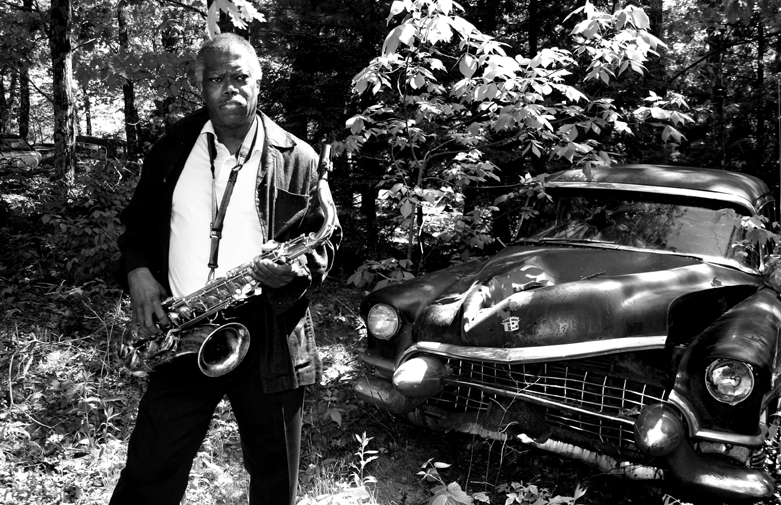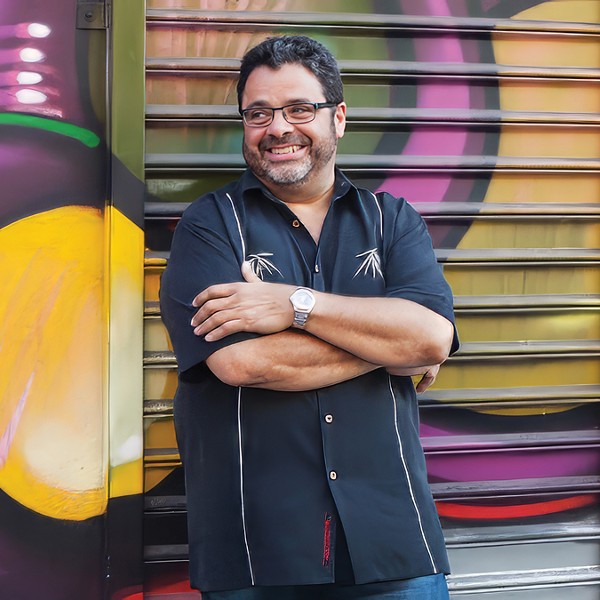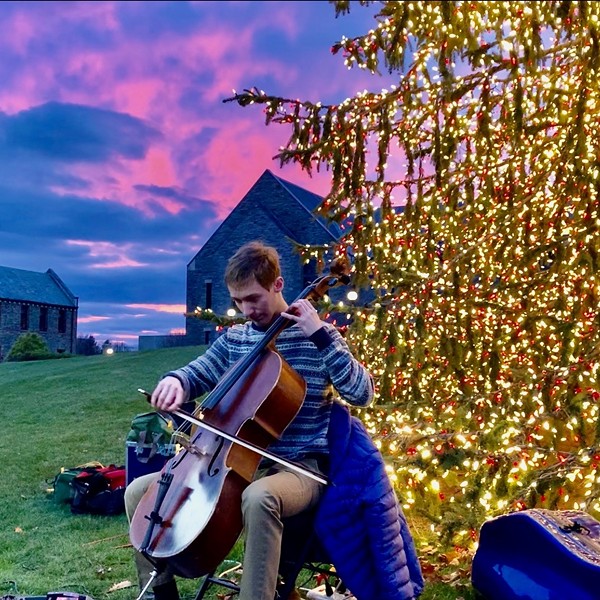In the world of music journalism, we like to throw around terms like “legend” or “highly influential” when referring to artists whose work we feel has been undervalued. In most instances, the situation is usually one of overreaching, of we scribes letting our enthusiasm get the better of us in order to grab the reader’s attention and make us feel like we’re doing our jobs. But in the case of Poughkeepsie multi-instrumentalist and composer Joe McPhee, any such advocacies are rooted in pure, documented fact.
McPhee, 68, is widely revered as one of the most important avant-jazz musicians to take the 1960s “new thing” ideas of icons like John Coltrane, Albert Ayler, Archie Shepp, and Pharoah Sanders to the next level. His incendiary early albums, Underground Railroad (1969), Nation Time (1970), and Black Magic Man (1970), burn with radical political themes, their rousing, often funk-fueled sound a preternatural balance of aggressive experimentalism and melodic sensibility. His incorporation of psychologist-theoretician Edward de Bono’s principles of lateral thinking into his approach has inspired other players to reevaluate their own methods, while his efforts at the now common concept of blending standard jazz instrumentation with electronics date from the early Seventies. McPhee’s discography continues to swell, with more than 70 recordings as a leader, on solo dates, with his bands Survival Unit and Trio X, and as a collaborator to Donald Cherry, William Parker, Rashied Ali, Matthew Shipp, DJ Spooky, Peter Brötzman, and other luminous names. And he’s a veritable god in Europe, where he tours multiple times each year.
“I really believe that years from now we will look back on some of Joe McPhee’s records as some of the most important records ever made,” says jazz historian and Chicagoan John Corbett, curator of Atavistic Records’ Unheard Music Series, which has re-released several of the artist’s earliest titles. “He can find the music in any situation. There can be the most insane, noisy stuff going on around him on stage and he’s able to pull the music out of it, and not in a way that’s predictable or cloying. Joe is just so deeply musical in everything he does. Just his way of being in the world is musical.”
While the seeds of his gifts are innate, the tree that bears their fruits is one at which the reed and horn player has toiled long and hard to perfect, both on and off the bandstand. “I worked for 18 years in an automotive ball bearing plant to be able to keep playing this music,” McPhee says with stark seriousness. But he starts to chuckle when he thinks back to that period. “The people I worked with at the factory knew I was a musician, that I would go to Europe to play. And they kept bugging me to let them hear my music,” he recalls. “So finally I brought some tapes in for them to hear. Their reaction was, ‘People actually pay to hear you do this?!’ But, hey, that job paid the bills. Although it’s always been a struggle.”
Today, however, it’s a day off—highballs in High Falls, actually. McPhee is kicking back at the bar of The Egg’s Nest restaurant, and the eatery’s interior, an explosion of color with its wild murals and collages of quirky oddments, seems a more than adequate metaphor for the man’s always-surprising music. Dignified in a tweed sportcoat and black turtleneck, he looks like a retired college instructor—which he is, having taught music in Vassar College’s black studies program from 1969 to 1971. On this crystal-blue spring afternoon, he’s enjoying some brief time between tours, having just come off the road in the States with Swedish garage-punk-jazz outfit The Thing to gear up for another trans-Atlantic expedition. The TV’s on overhead and a report about conservative Nikolas Sarkozy’s fresh victory in France’s presidential election makes McPhee uneasy. “That’s not good news,” he worries, cocktail tinkling in hand. “Could be really bad for the arts funding over there. We definitely need help with that over here, too. Instead of this horrific, soulless bullshit that’s getting pushed as a substitute—all of this phony Hollywood stuff we’re being fed that’s all about instant gratification.”
Joe McPhee was born to Bahamian parents in Miami, Florida, in 1939. When he was three years old, the family’s house was struck by lightning and burned to the ground. Thankfully, no one was injured, but the event forced a change. “My dad didn’t want to start all over again down there, he didn’t want to raise a family in the South,” McPhee recounts. “He found work in Poughkeepsie, so that’s where we moved to.”

















